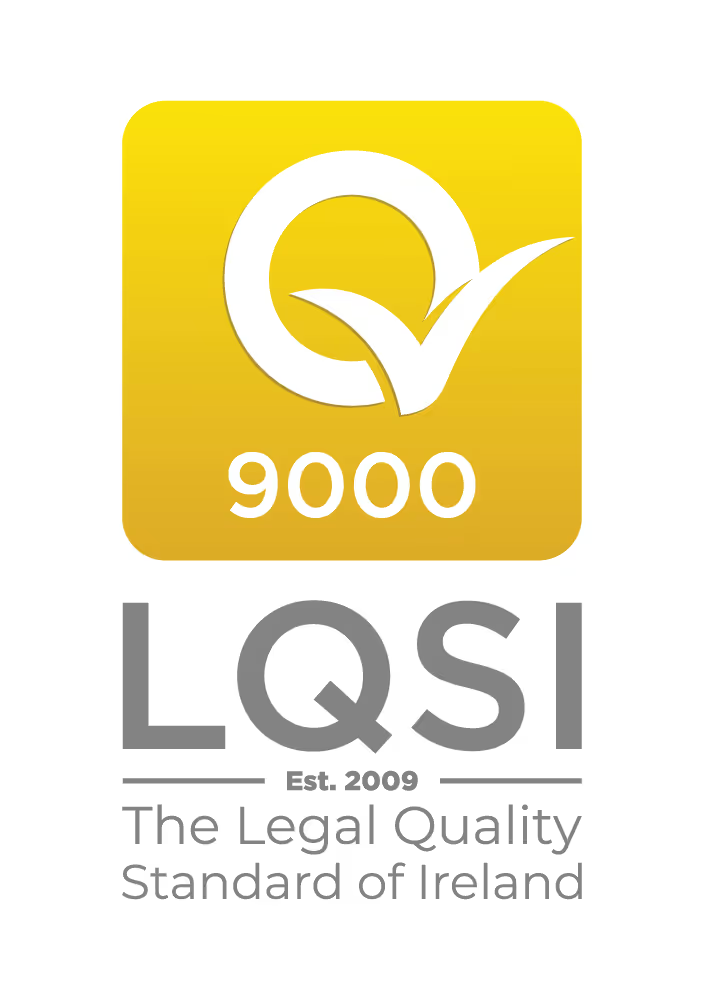In this article, our Litigation & Dispute Resolution team lay out Legal Advice Privilege and the circumstances where this may be inadvertently waived. For more information on this subject, please get in touch with David Curran, or Cliodhna McHugh.
Due to the confidential nature, certain information may be eligible to benefit from legal professional privilege.
In order to benefit from legal advice privilege, the communication must be for the purpose of providing or receiving legal advice. To ascertain whether information constitutes legal advice, it is important to look at the dominant purpose of the exchange of information. Essentially, it must be for the purpose of providing legal advice rather than legal assistance.
Once this has been established, a client and solicitor are permitted to withhold certain confidential communications and documents on the basis that those communications are classified as attracting privilege.
To avail of legal advice privilege, the key aspects to remember are as follows:
1) the material in question must constitute a communication between a lawyer and their client (or through an agent engaged by the client for the purposes of obtaining legal advice on their behalf);
• McMahon v Irish Aviation Authority IEHC 221 confirmed that the definition of “lawyer” for this purpose includes:
i. Solicitors
ii. Barristers
iii. Salaried in-house legal advisers; and
iv. Foreign lawyers
2) The communication must arise during the course of the professional lawyer-client relationship;
3) The communication must have a confidential nature (it should be noted that if the communication is repeated in front of a third party, privilege is likely to be destroyed);
4) It must be for the purpose of seeking, giving or receiving legal advice; and
5) Where legal advice privilege is successfully established, it lasts forever.
It is important to note that, as in the case of R v Manchester Crown Court, Ex p Rogers [1999] 1 WLR 832, certain details in a solicitor’s attendance note were not deemed to be privileged, as they did not constitute communication and recorded nothing passing between a lawyer and client that could be subject to such privilege. Furthermore, in Bord na gCon v Murphy [1970] 1 I.R. 301, it was noted that privilege extended only to communications between the solicitor and the client which were intended to be confidential in nature.
It was previously believed, as detailed in the case of Fyffes plc v DCC plc [2005] 1 IR 59, that where Legal Advice Privilege is found to exist, it is permanent.
However, the Irish High Court has recently dealt with a case in relation to inspection of documents containing legal advice, and took a different approach to that in Fyffes. In Elsharkawy v Minister for Transport [2023] IEHC 672, advice was referred to in a replying affidavit, sworn on behalf of the Respondent. Although privileged documents would typically be exempt from production in a discovery process, the Court ultimately found that inspection of the documentation involved should be ordered. This decision illustrates the risks associated with referring to privileged communications, such as legal advice, in affidavit evidence. It also highlights the fact that even if no specific document is referenced, if documentation is identifiable, inspection may still be ordered.
In this case, Mr Elsharkawy brought Judicial Review proceedings against the Minister for Transport, which arose from a change in the law relating to the number of penalty points required before a mandatory driving disqualification would occur. In 2021, the Respondent, the Minister for Transport, issued a press release setting out that it was revising its approach to the interpretation of the legislation. This revised approach led to the disqualification of the Applicant, Mr Elsharkawy, which prompted the Judicial Review.
The decision in this case arose out of a motion brought by Mr Elsharkawy seeking inspection of a series of documents containing legal advice received by the Minister, which were referred to in a replying affidavit delivered as part of the Judicial Review proceedings. The conclusion of the advice received was set out in the relevant affidavit, although it was expressly stated that the advice was confidential and privileged.
The Court did accept that the documents, on first impression, attracted a valid claim of privilege. As a result, the main question was whether the Privilege had been waived due to the Minister deploying the legal advice for the purpose of defending the proceedings. There was also a question of whether Order 31 Rule 15 of the Rules of the Superior Courts (RSC) were applicable. This Rule states that a party can seek inspection of any document referred to in a pleading or affidavit by an opposing party.
The Minister resisted the motion and relied on the argument that Mr. Elsharkawy had, in his statement of grounds, initially referred to legal advice received by the Minister so that, when replying to it, the Minister had little choice but to refer to it. Furthermore, insofar as it did note the change in approach to the interpretation of the legislation, it did so for the purpose of providing context.
The Court acknowledged that privilege was absolute, in that there was no judicial discretion to displace it on the grounds of fairness. In addition, the Court noted that privilege could be waived either expressly or impliedly, however, this was not to be done lightly and did not arise merely because it was referenced. Instead, it may be applicable when the documents are deployed by partially disclosing them or summarising their effect.
The test was essentially whether the contents and effect of the document is being relied upon in order to gain advantage. Ultimately, the Court was satisfied that the Minister had engaged in conduct that amounted to a waiver of privilege. It rejected the Minister’s argument, and found that before the commencement of proceedings, the Minister had sought to justify its position by reference to the legal advice. The reference to the legal advice in the affidavit went further than just repeating the information that is already available, including press-released published by the Minister. Given that the Minister had chosen to disclose in part, the content, and effects of the legal advice, it transposed that there had been deployment for the Minister’s litigious advantage.
Regarding the procedural element, the Minister maintained that no specific document was identified or sought, and that inspection should therefore not be ordered. However, the Court was “inclined to take a pragmatic view.” Without any assertion by the Minister that the advice was oral, the court said it was sensible to infer that the advice was reduced to writing so documents setting it out were available. Therefore, it deemed that the reference to legal advice could be treated as a reference to a document for the purpose of RSC Order 31, Rule 15.
The Court directed the Minister to allow Mr. Elsharkawy to inspect all documents comprising legal advice received by the Minister.
Takeaway
Therefore, the main takeaway is that privilege can sometimes be waived unintentionally or inadvertently. In the context of legal advice, privilege may be said to have been waived where the relevant statement goes beyond merely referencing the fact it was obtained. Although it will be a question of degree, a party should be careful to avoid disclosing the contents and effect of legal advice, even in summary form. It should also be remembered that an Order 31, Rule 15 RSC application for inspection may be allowed even without reference to specific documents where the documentation may be identifiable.







